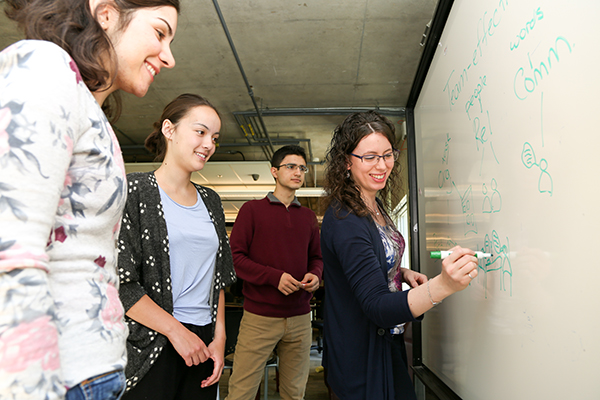
With exam season underway, students receive marks reflecting what they learned — but it’s often harder to evaluate improvements to skills such as communication, relationship building or team problem solving, especially in large classes.
Now, as they complete their final group presentations for the semester, U of T Engineering students are receiving feedback on their team effectiveness too, thanks to a web-based tool designed to give personalized feedback based on peer- and self-evaluations.
A recent study by the Higher Education Quality Council of Ontario (HEQCO) reports on the effectiveness of the tool, which was built, tested and deployed in U of T Engineering.
The tool, called the Team Effectiveness Learning System (TELS), delivers detailed, individual and team feedback to students in very large classes. TELS invites students to assess their own performance, and that of their teammates, at critical junctures in the course. Class instructors review the feedback to gain a better understanding of how they can support both individual students and teams to ensure their success.
“The tool measures three key dimensions of team-member effectiveness: organizational, relational and communication competencies,” says Patricia Sheridan (MechE 0T9, MASc 1T1 and ChemE PhD Candidate), who is pursuing her doctorate in U of T Engineering’s Institute for Leadership Education in Engineering and led this project. “It’s a tool for informing, rather than dictating, team grades.”
This story was originally posted on U of T Engineering News. Read the entire story here!
